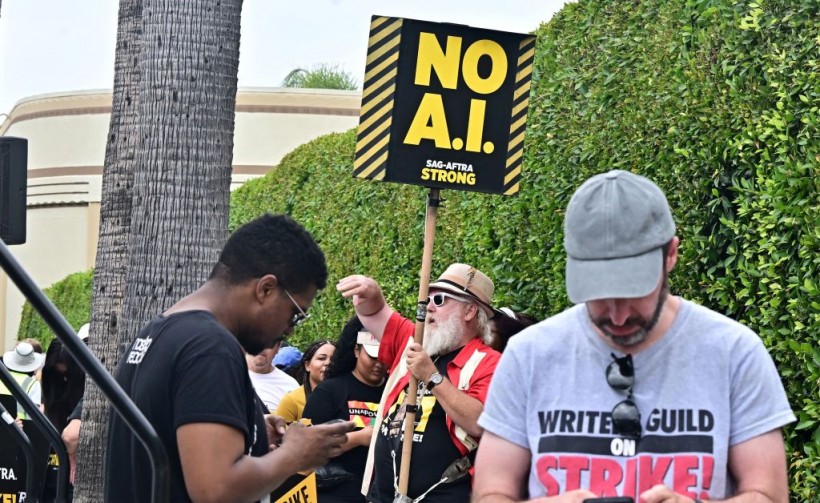Artificial intelligence seems to be gaining traction in Hollywood implementation and with consumers. Deloitte's 18th annual Digital Media Trends claims that 22% of consumers see GenAI as being better at crafting stories compared to human creatives.
According to the survey, 42% believe that both generative AI and humans are capable of producing engaging material, while 22% believe that generative AI could produce films and TV series that are more engaging than those written by humans.
The majority, 70% of participants in the study, still prefer to watch a movie or TV show produced by a human rather than one created by generative AI.
When it comes to experimenting with these technologies, Gen Z and millennials are setting the standard: 25% of those questioned have used generative AI to create text, and 18% of them have used it to make images. With these measures, older generations lag even further behind.

(Photo: FREDERIC J. BROWN/AFP via Getty Images)Actor, director, and cinematographer Mark Gray holds a sign reading "No A.I." as writers and actors stage a solidarity march through Hollywood to Paramount Studios on September 13, 2023, amid a halt in movie and TV production as the dual labor shortages continue. The Writers Guild of America has been on strike since early May, and the SAG-AFTRA actors' union joined the writers on the picket lines in July.
According to the report, astute producers and studios ought to think about experimenting with the ways in which these AI tools might enhance human creativity and improve team productivity.
The study claims that generative AI may make it simpler for businesses and content producers to produce higher-quality work, but it may also result in an abundance of innovative and low-cost content that blurs the lines between "real" and artificial, commodity and luxury.
The report demonstrates a certain amount of optimism regarding AI, asserting that media and entertainment firms and society at large may soon have to deal with a significantly greater amount of novelty, content, and creative production when enabled by generative AI.
The study was conducted among 3,517 American customers aged 14 and above in October 2023.
Read Also: Julia Louis-Dreyfus Reveals ChatGPT Mistook Her for Julia Roberts in AI-Assisted Speech
Human Filmmakers Over AI
Although the survey indicates that customers are not wholly opposed to generative AI, Ted Sarandos, the CEO of Netflix, recently said that AI would always be a tool for artists rather than a substitute for filmmakers in Hollywood.
During the discussion, Sarandos stated that the winners will be the creators who become experts at using these AI tools while advancing human authenticity and the reality of the human experience. Sarandos concludes that audiences will be able to tell the difference between true and "inauthentic" films.
Sarandos notes that using AI to speed up the construction of this "authentic" human experience will ultimately fail because, as he puts it, there is "no shortcut" to manufacturing it.
AI Felt Around Hollywood
Hollywood continues to be affected by AI, for better and for worse. Most notably, when famous Hollywood director Tyler Perry abruptly stopped a $800 million expansion project for his Atlanta studio complex after learning about the potential of OpenAI's newest invention, the Sora AI tool.
Famed for his work in television and movies, Perry had been adding 12 more sound stages to his studio. But after seeing examples of Sora's ability to produce incredibly lifelike video content using only text commands, Perry was forced to put these ambitions on hold indefinitely.
Related Article: Top 7 Celebrities Victimized by AI Deepfakes: A Closer Look at the Rising Threat Amid Taylor Swift Fake Porn Image Controversy










